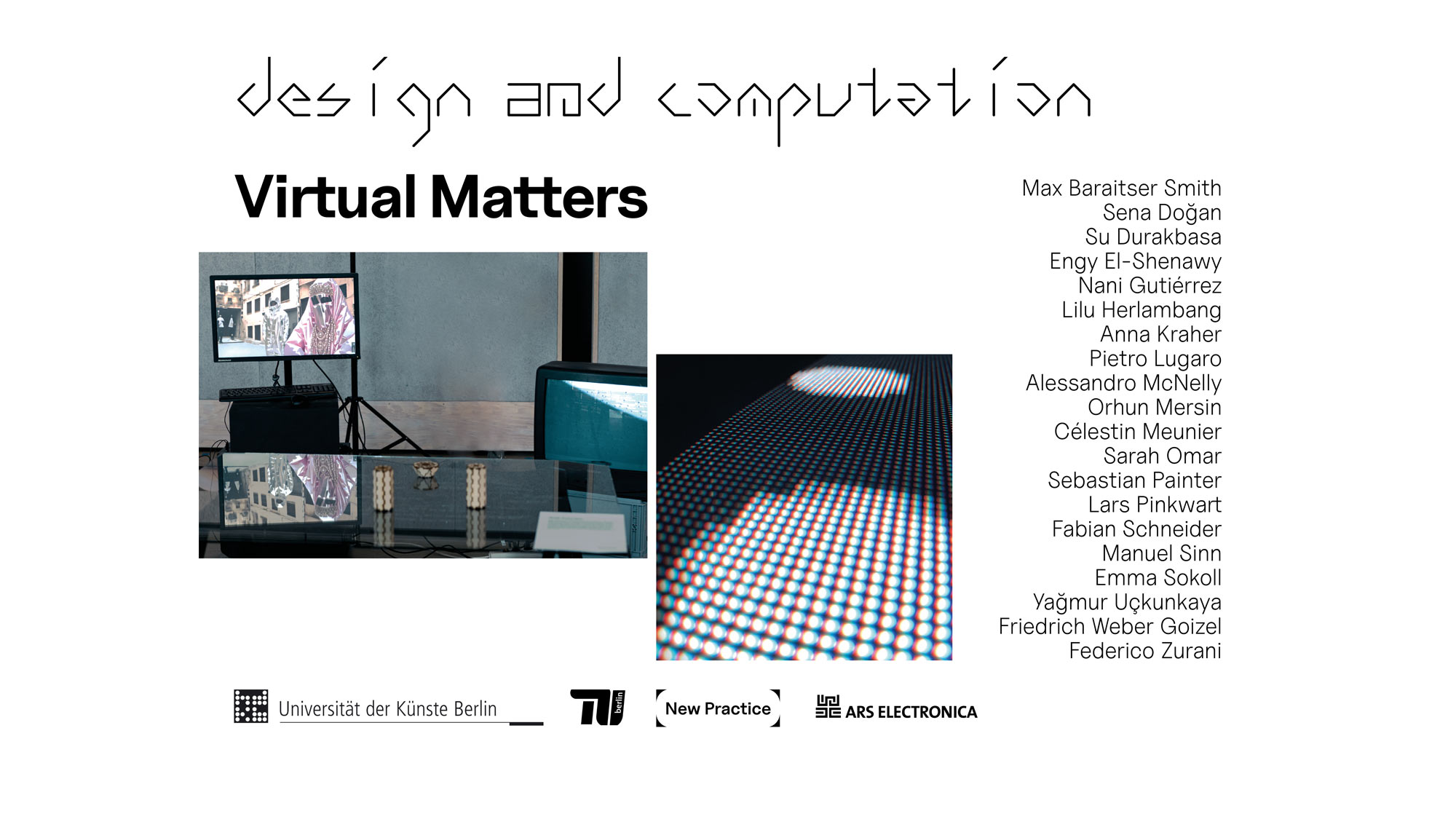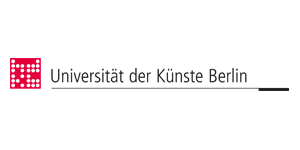Virtual Matters showcases the ongoing research and unfolding methodologies of a new, post-disciplinary practice developed as part of the joint interdisciplinary and research-based Master’s program Design & Computation of the Technical University Berlin and the Berlin University of the Arts. It features a selection of works by three generations of students, from first-year graduate students to those presenting their final Master’s research. Positioned at the intersection of art, science, society and technology, these works explore and reveal exemplary epistemic, poietic and aesthetic strategies for understanding and addressing a diverse range of issues related to today’s rapid technological and societal transformations.
As reflected in the exhibition’s title, a common thread connecting these different works is their theoretically informed engagement with the digital or virtual, not as an immaterial realm of passive mediation, but as a multi-faceted and inherently active, affective and productive kind of materiality: from generative AI agents and algorithms that influence decision making, the relationship between in-game photography and real-life war zones, or the shifting temporalities of techno capitalism and the legacies of predictive modeling to virtual ecosystems that evolve and adapt – installations, theoretical frameworks and practical prototypes invite visitors to reconsider their relationship with digital technologies and to envision more nuanced and inclusive ways of coexisting with virtual matters.
-
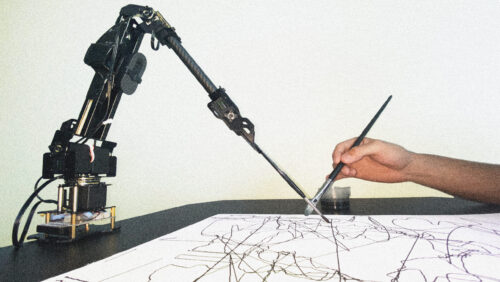
ACV (Algorithmic Cultural Vandalism)
Pietro Lugaro (IT), Alessandro Mac-Nelly (DE)
ACV (Algorithmic Cultural Vandalism) is an interactive installation work, in which symbolic language, in its most diagrammatic aspects, is used as a tool for constructing an algorithm. The aim is to reflect on the relationships between magic and technique, human and non-human, and to explore the mental cartography that expresses the differences between sign and…
-
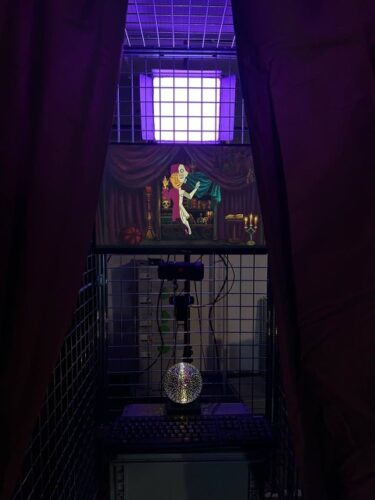
AI Fortune Teller
Su Durakbasa (TR), Sebastian Painter (DE)
In a technology-driven world, spirituality is redefined by social media and mobile apps. With the rise of astrology apps and spiritual content, AI Fortune Teller seeks to modernize traditional fortune-telling using AI and digital media, exploring human-machine interaction, spirituality, and algorithmic mysticism.
-
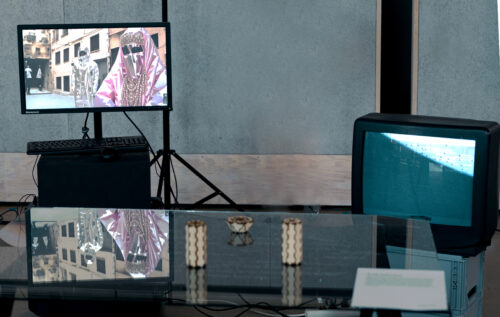
Arab Futurism
Sara Oman (EG)
Arab Futurism explores a question and movement that aims to contribute to more counterculture in thought and action. Rooted in current political discourse, it summons non-parallel universes where new value systems can be decoded and past-present-future narratives interrogated.
-
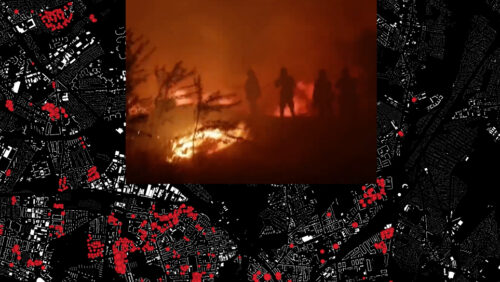
COMMON GROUND
Manu Sin (DE), Sena Dogan (TR)
COMMON GROUND rethinks space and ownership in Berlin, renegotiating collective decision-making in the face of crises. In an expropriated Berlin, where the conditions of use are decoupled from ownership—and thus from capital, power, and discriminatory exclusion—there is the chance to resiliently face and overcome crises equitably.
-
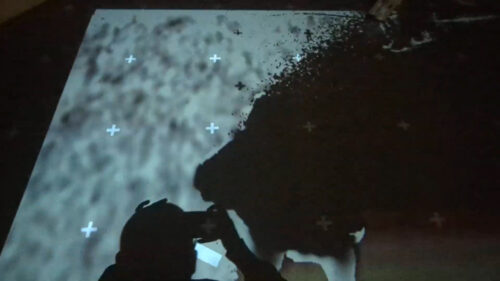
Digital Mirror
Lilu (ID), Manu (DE), Celestin (FR)
The Digital Mirror is an interactive art installation that plays with the concepts of curiosity, narcissism and surveillance to delve into the relationship between digital identity and personal agency within virtual spaces.
-
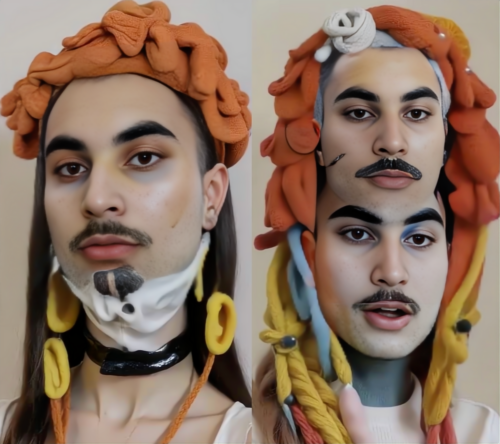
Ex-Human
Orhun Mersin aka kekik (TR), Yağmur Uçkunkaya (TR), Nani Gutierrez (CL)
Based on a prediction that 90% of online content will be synthetically generated by 2025, the project envisions a near future where digital influencers infiltrate both private and social spheres, even to the extent of appropriating users’ identities.
-
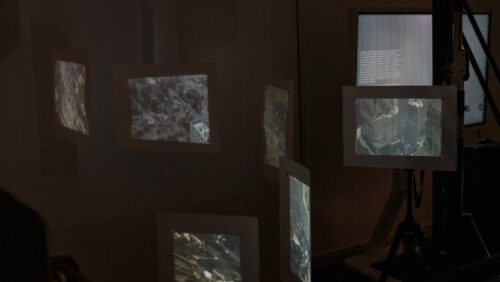
Exploded Snapshot
Federico Zurani (AL), Engy El-Shenawy (EG)
By using an aesthetic-oriented approach we are studying the methods and processes involved in creating images that give us a sense of reality. From scientific images to news and computer simulations, the aesthetic code used to represent certain events is fundamental in conveying a sense of reliability and reality to the viewer.
-
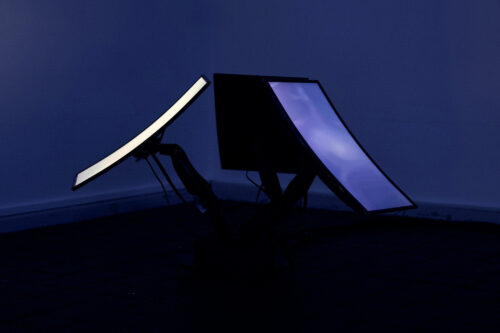
Perpetual Disruption
Lars Pinkwart (DE)
Complex systems produce the belief in a world which is so complex and volatile that change can only be managed by markets and machines. What remains of human agency is to adapt to the perpetual disruptions heading our way, taking place through demos and training.
-
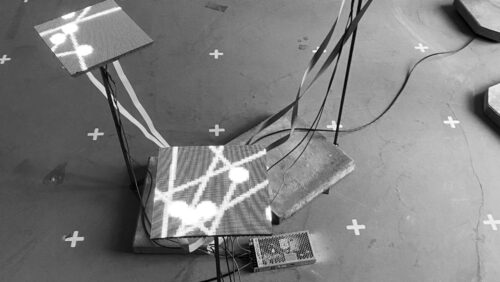
Similar Processes
Fabian Schneider (DE)
The installation Similar Processes reflects on the constitution of algorithmic procedures as they assemble in computational models. The experimental setup of the simulated worlds exposes the controls of their own design, collapsing into stable configurations at one moment while chaotically oscillating in another.
-
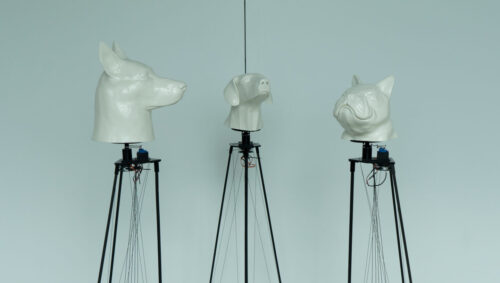
TAWA: Hunde
Emma Sokoll (UK), Friedrich Weber Goizel (DE)
Since the first domestication of the dog around 19,700 to 26,000 years ago, humans have bred a wide variety of dog breeds, all of which have distinctive character traits, abilities and specializations. The common origin of all breeds is the wolf.
-
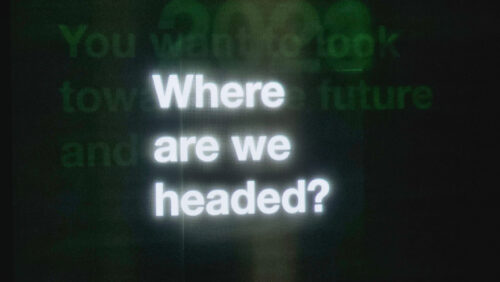
Today Is Yesterday’s Tomorrow
Anna Kraher (AT)
Predictions are bound by time-related parameters. On the one hand, predictive models use data from the past to predict the future, allowing the past to legitimize present actions. On the other hand, repeated predictions about the future of technology influence which technologies are considered inevitable.
-
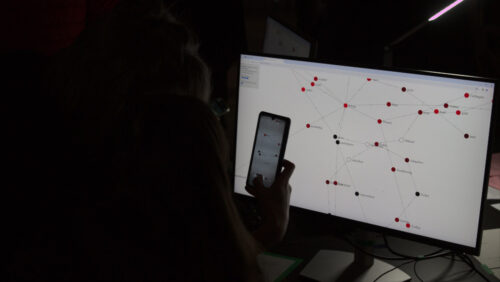
Word Association Games
Max Baraitser Smith (UK)
Language learning is a messy process. Word association games can shed light on this process by showing which words/concepts people connect together. This project looks at how dynamic maps make it possible to follow other people’s lines of thought, and suggest a way of thinking about collective knowledge in terms of overlapping pathways.

New Practice in Art and Technology (University of the Arts & Technical University Berlin) (DE)
New Practice in Art and Technology is a research platform fostering a new post-disciplinary practice in light of technological and societal transformations. It engages with emerging cultural practices from an inter- and transdisciplinary perspective, bringing together positions from art, science, technology and theory. It emerges from the MA Design and Computation between the University of the Arts and the Technical University Berlin.
